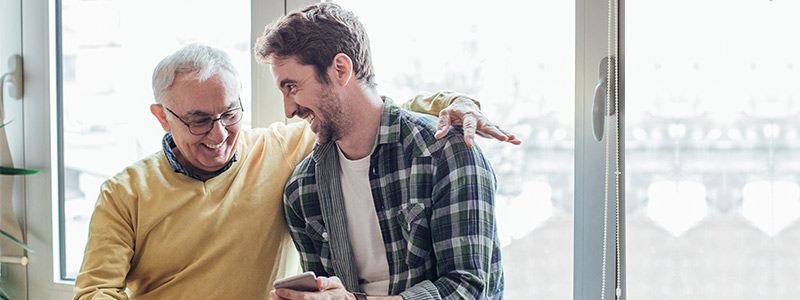
Getting an email address
Email is such a common method of communication that we hardly ever stop to think about it. But even though dozens of emails can be sent and received by you every day without incident, it’s still sensible to take a few moments to make sure your account—along with all the thoughts and ideas you send to friends and family in your messages—is as safe and secure as possible.
Firstly, it’s a good idea to have a personal email account that only you can access. Yes, of course you can trust your family members, but there are still good reasons to have your own account. If friends and relatives know that you share an email account with your spouse, for example, they may be less willing to share sensitive personal information that they only intended for you to read. And it goes the other way too. Maybe you want to throw your other half a surprise party. Forget trying to organise it via email if she has access to those RSVPs too!
Remember, when you’re sharing an email account it’s easy for an email to be accidentally opened by the wrong person—or deleted entirely—or to go unnoticed by the intended recipient if it gets pushed to the bottom of a long list of incoming emails belonging to someone else. Your own account just makes online life a little easier, and helps to ensure that emails are read and responded to without delay.
You might also want to consider having two personal email accounts. One would be used to contact friends and family—those people you know and trust. The second would be used if you’re filling out contest forms or signing up for newsletters. Spam and unsolicited emails tend to flood in as soon as you start giving out your email address online, so having a second email dedicated to this sort of activity means that your important personal account you use to communicate with friends and family can stay as clutter-free as possible.
How can you keep your personal email accounts as safe and secure as possible? Here are some of the tips Get Safe Online suggest you do:
Log out of your emails
Make sure to log out and close the browser if you’re checking email on a public, shared computer, such as in a library or internet café. Logging out is the first step—this ensures that your email account isn’t easily accessible to anyone who uses the computer after you.
But don’t forget the important second step: closing the browser window. Some email services display your username (but not your password) even after you’ve logged out, so closing the browser window is an extra level of security that means no one will have access to your account!
Use scanning and anti-virus software
Maintain and keep updated email scanning and anti-virus software, and use it to scan all incoming emails, even from trusted friends and family. You never know when someone may innocently introduce a virus to your computer that they didn’t even realise they had.
Don't use simple or easy to guess passwords
A strong password—one that hackers would have difficulty cracking—should have a minimum of eight characters, be as meaningless as possible and include both upper and lower case letters and special characters.
Deleted emails aren't necessarily gone forever
If you accidentally delete an email, just check your deleted email folder to retrieve it. Some email services, particularly free web-based services like Yahoo and Gmail, automatically empty your deleted mail folder every few days, but others will require you to manually delete your trash.
But note that even if you and the sender/receiver delete an email, it may still exist in backup folders on remote servers for years, and can be retrieved by skilled professionals. Think of everything you put into an email as a potentially permanent document. So if you suspect you’ve received a phishing email, you can block the sender and delete the email afterwards. If they are framing themselves as a company, such as a bank or Amazon, report it as fraud.
These are just a few ways you can stay safe and secure while using your personal email account. For more information on email security, visit Get Safe Online or do a quick online search for tips and suggestions to keep you safe.




